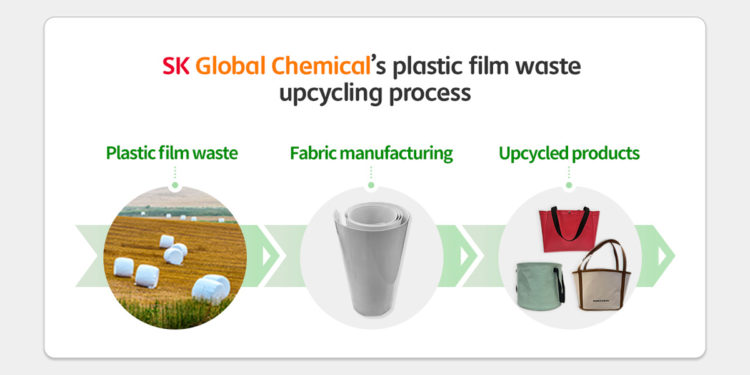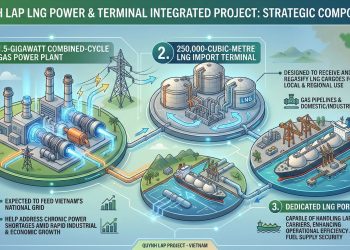SK Global Chemical Co., a core SK Innovation subsidiary, teamed up with Dongmin Industry Cooperative to collect and recycle used plastics in bale silages. At present, baling in South Korea generates 1,200 tons of plastic waste, causing many environmental pollution issues.
To solve these problems, Dongmin Industry Cooperative would gather more than 50% of the plastic waste from farm bale silages, while SK Global Chemical would upcycle them to create new, eco-friendly products.
Transforming Used Bale Silage Into Eco-Friendly Materials
In particular, the two companies plan to combine post-consumer recycled (PCR) resin from the collected bale silage plastic waste with virgin plastic to create upcycled films and fabrics. Dongmin Industry Cooperative also developed a technology that eliminates unpleasant odors produced from the process.
What’s more, the SK Global Chemical partner’s technology churned out output quality similar to that of virgin plastics. Following the procedure, SK Global Chemical would utilize the upcycled materials to manufacture sacks for Nexlene, its high-performance polyethylene.
Previously, SK Global Chemical produced Nexlene sacks from 100% virgin m-LLDPE. However, the company could now make upcycled sacks composed of 35% PCR resin and only 65% m-LLDPE. This new technology also notably lessens carbon emissions by 25%.
Besides using the virgin plastic-PCR resin mixture for Nexlene sacks, SK Global Chemical would use it for various logistics applications. On a similar note, the company collaborated with LogisALL to minimize logistics packaging waste by establishing a virtuous container-recycling system.
Furthermore, the company partnered with SK Innovation and the Korea Expressway Corporation to launch the eco-friendly ‘Rest-cycle’ campaign this year. The participating companies would also introduce the Rest-cycle campaign to almost 200 expressway rest areas throughout South Korea.
Moreover, SK Global Chemical’s upcoming social venture involves numerous local companies promoting sustainable consumption. The companies, including Montsenu, Right Route, and Usisan, would use the films and fabrics from plastics to develop upcycled products.
Other Efforts to Curb CO2 Emissions
Earlier, SK Global Chemical signed a partnership deal with Jushin Trading, Maeil Dairies, and Tetra Pak Korea. Under the agreement, they would establish the first-ever aseptic packaging resource circulation system in South Korea.
To this end, the companies would extract plastics and aluminum composites from aseptic cartons, recycling the collected materials 100%. As a result, the project would recycle more than 3,000 tons of composite materials. It would also lessen 19,000 tons of carbon dioxide emissions annually.
Additionally, SK Global Chemical worked with MinimalWorks, a local camping, and hiking brand, to develop upcycled plastic crates. Folding Box Eco, the two companies’ upcycled product, reduces carbon dioxide emissions by 50-80% compared to ordinary plastic materials.







